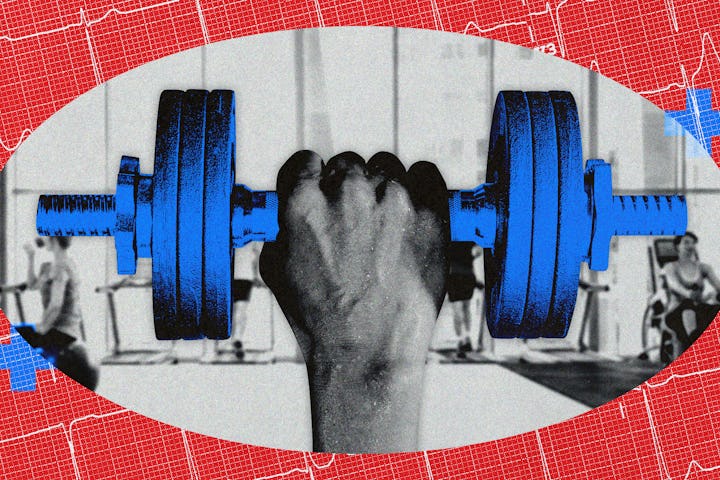You Don't Have To Get Big To Reap The Brain Benefits Of Strength Training
Strength is more important than muscle mass, a recent study finds.

Some guys put on muscle easily, and others feel like they’re always hitting the gym but barely gaining in size. So long as you’re into strength training for the health benefits rather than vanity, however, it’s okay if you don’t get big. Because a new study finds that strength rather than muscle mass is what’s important when it comes to keeping your brainpower into old age.
Previous research has found associations between muscle mass and cognition — particularly that people with low muscle mass are at risk of cognitive decline. But this recent study, published in the journal Lifestyle Medicine, found that more muscle isn’t everything.
For the study, researchers analyzed data from 1,424 U.S. adults who were 60 or older and took the National Health and Nutrition Examination Survey. Participants answered questions about things like their physical activity and nutritional and metabolic risk factors for cognitive decline. The researchers gave them a cognition test, full body composition scan, and tested the strength of their quads, as well as tested other health parameters like their waist circumference, blood sugar, and blood pressure.
The research team found that, surprisingly, muscle mass didn’t have much of a link to cognition at all; differences in muscle mass explained only 0.5% of variation in scores on the cognitive test. Differences in quad strength, however, explained 5% of the variation in cognition.
The researchers also found that strength was associated with physical activity; in other words, people got strong by exercising. But muscle mass didn’t have this same association, and instead was more strongly associated with total mass. So, the people who had more muscles didn’t necessarily get that way by pumping iron, but by putting on more mass in general — including fat. And that could blur any sort of connection between muscle mass and cognition.
With the current evidence available, it’s unclear what the true connection is between muscle mass and cognition. “One theory is that muscle tissue should also be considered an ‘endocrine organ,’ sucking up glucose from the bloodstream and secreting molecules called myokines that are thought to benefit health and brain function. In this view, simply having lots of muscle should protect against cognitive decline, regardless of how you use it,” fitness journalist Alex Hutchinson wrote for Outside.
Besides the current study, there isn’t much research on the relationships between strength and cognition in older adults, but a 2022 review study did find a link between more strength and higher cognition. Potential reasons why this is the case, according to a 2021 review study, include that “contracting skeletal muscle” — aka working out — releases biomolecules that support neurons and has important effects on the immune system that then modify brain function.
All of this reinforces a crucial message: We should be less invested in getting huge gains in musculature and rather focus on functional strength. And keeping that strength as you get older will help keep your brain from aging too quickly.